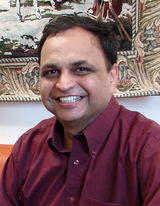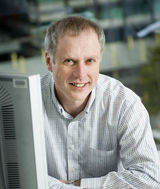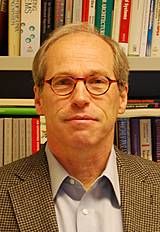|
CCGrid 2012 — The 12th IEEE/ACM International Symposium on Cluster, Cloud and Grid Computing
May 13-16, 2012, Ottawa, Canada – Delta Ottawa City Centre Hotel, 101 Lyon Street, Ottawa
|
||





|
||
Keynote Speakers1. Discovering Knowledge from Massive Social Networks and Science Data – Next Frontier for HPC
Prof. Alok N. Choudhary John G. Searle Professor Electrical Engineering and Computer Science Northwestern University, USA
Abstract: In this talk, followed by an introduction to high-end data mining and the basic knowledge discovery paradigm, we present the process, challenges and potential for this approach. We will present many case examples, results and future directions including (1) mining sentiments from massive datasets on the web, (2) Real-time stream mining of text from millions of and tweets to identify influencers and sentiments of people; (3) Discovering knowledge from massive social networks containing millions of nodes and hundreds of billions of edges from real world Facebook, twitter and other social network data (E.g., Can anyone follow Presidential campaigns and real-time?) and (4) Discovering knowledge from massive datasets from science applications including climate, medicine, biology and sensors. The talk will illustrative and example driven and may include 1-2 live demonstrations.
Bioigraphy: He is a fellow of IEEE, ACM and AAAS. His research interests are in high-performance computing, data intensive computing, scalable data mining, computer architecture, high-performance I/O systems and software and their applications. Alok Choudhary has published more than 350 papers in various journals and conferences and has graduated 30 PhD students. Techniques developed by his group can be found on every modern processor and scalable software developed by his group can be found on most supercomputers. Alok Choudhary’s work has appeared in many traditional media including New York Times, Chicago Tribune, The Telegraph,, TV channels such as ABC, PBS and many international media outlets all over the world. 2. Assertion Based Parallel Debugging: A new way of thinking?
Prof. David Abramson ARC Professorial Fellow Professor of Computer Science The Faculty of Information Technology Monash University, Australia
Abstract: In this talk I will discuss the use of debug-time assertions (both within and across programs), and show that these can be used to debug parallel programs. The techniques reduce the debugging complexity because they reason about the state of large arrays without requiring the user to know the expected value of every element. When used across programs, the technique can help find errors that occur when a program is ported to a new platform. Whilst assertions can be expensive to evaluate, their performance can be improved by running them in parallel. We have implemented these ideas in a new debugger called Guard, and will illustrate its performance on tens of thousands of cores on a Cray XE6.
Bioigraphy: Abramson is currently an ARC Professorial Fellow; Professor of Computer Science in the Faculty of Information Technology at Monash University, Australia, and science director of the Monash e-Research Centre. He is a fellow of the Association for Computing Machinery (ACM) and the Academy of Science and Technological Engineering (ATSE), and a member of the IEEE. Abramson has served on committees for many conferences and workshops, and has published over 200 papers and technical documents. He has given seminars and received awards around Australia and internationally and has received over $8 million in research funding. He also has a keen interest in R&D commercialization and consults for Axceleon Inc, who produce an industry strength version of Nimrod, and Guardsoft, a company focused on commercialising the Guard relative debugger. Abramson’s current interests are in high performance computer systems design and software engineering tools for programming parallel, distributed supercomputers and stained glass windows. 3. Twenty Years of Grid Scheduling Research and Beyond
Prof. Dick H.J. Epema Delft University of Technology Eindhoven University of Technology The Netherlands
Abstract: In these twenty years, the computing world has drastically changed: data centers dominate the internet, clouds are driving out grids, data constitute virtual tsunamis, multicore has revived parallelism, and energy efficiency has become a concern. In this talk I will also try to look ahead. What are the essential differences between (research in) grids and clouds? What is the value of our experimental work when research systems are increasingly dwarfed by the systems deployed in industry? And as one of the application drivers for research in resource management I will present the case of massive multiplayer online games, which constitute a huge market and have a rich structure in terms of system requirements.
Bioigraphy: Dick Epema participates in the Infrastructure Virtualization for e-Science project of the Dutch national COMMIT program and in the European P2P-Next project. He has authored over 90 scientific papers, and has been on numerous program committees in grids, clouds, and P2P computing. He is an associate editor of the IEEE Trans. on Parallel and Distributed Systems. He was general co-chair of the Euro-Par 2009 and the IEEE P2P 2010 conferences, and he is the general chair of the 21st Int'l ACM Symp. on High-Performance Parallel and Distributed Computing in 2012. |
||
|
© IEEE Technical Committee on Scalable Computing. |
||









